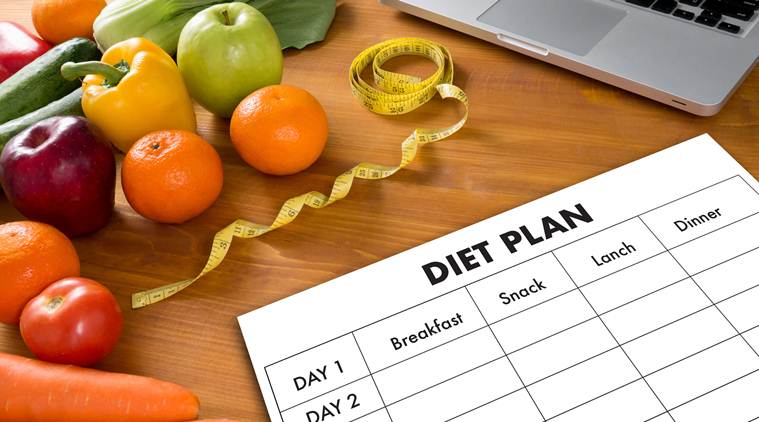Bariatric surgery or gastric bypass is a life-changing event that helps you lose weight so you become fit again and bid goodbye to other weight-related problems. After the surgery, your doctor will give you detailed dietary instructions, including the foods to eat and avoid. A post-bariatric surgery diet helps individuals recover from the surgery to heal and learn new and healthy eating habits.
What is the Importance of Diet after Gastric Bypass?
There is no point in opting for surgery if you don’t focus on what to eat and what to avoid. Returning to your older dietary habits means bringing weight back into your body. It is the reason why doctors and dieticians focus so much on changing your food habits after the surgery. A gastric bypass diet is designed to serve many purposes.
A good diet allows your stomach to heal without any damage or stretch by the food item you consume. You also get used to eating smaller portions, which is very important after bariatric surgery. When you keep your food habits in check, it automatically contributes to proper weight management. Lastly, eating a healthy diet helps you avoid common side effects and discomfort related to surgery.
A New Eating Pattern
Your doctor or dietician will not just give you an elaborate diet chart post-bariatric surgery. You will be directed to a new way of eating, including sow eating and other changes.
- Eat slowly and chew each bite until it is smooth in your mouth.
- Take at least 20-30 minutes to finish your meal. Eating fast after surgery may lead to pain under your breastbone or cause you to vomit.
- Eat small meals throughout the day instead of big meals.
- You will be strictly directed not to do munching or snacking between meals as it may contribute to weight gain.
- Stop eating when you feel satisfied; however, don’t end up eating only a little, as it may not provide essential nutrients to your body.
Diet After Gastric Bypass
Liquids
For the first day and subsequent days after the surgery, you will be allowed to drink clear liquids only. It includes unsweetened juice, broth, skimmed milk, decaffeinated tea or coffee, and sugar-free gelatin. Once you get used to handling these liquids, your doctor will suggest you take the next step.
Blended Foods
You can consume blended foods a week after liquids. Blended foods include food items that are mashed so that you can swallow them properly and they are quickly digested by your digestive system. The smooth consistency of these food items allows you to finish moderate portions quickly.
Include food items such as cottage cheese, soft scrambled eggs, cooked cereal, soft fruits, cooked vegetables, lean ground meat, poultry, fish, and strained cream soups. You can pair these food items with liquids such as unsweetened juice, water, skimmed milk, and broth.
Soft Foods
You can switch to eating soft foods after some weeks of consuming blended food items. Soft foods include pureed foods that are tender and can be easily chewed. The doctor will advise you to start with 3-5 small meals a day, with each meal containing one-third to one-half cup of food.
Opt for food items like flaked fish, ground lean meat, poultry, eggs, cottage cheese, cooked or dried cereal, rice, canned or soft fresh foods, and cooked vegetables without skin.
Solid Foods
You can switch to eating regular solid foods after about eight weeks of gastric bypass. However, you have to be careful with the frequency and amount of solid foods you consume. Start with eating three meals a day, each comprising one or one and a half cups of food. Do not fill your stomach with food, as eating in moderation is the key.
Depending on your tolerance, you can vary the number of meals and amount of food per meal. You can include the above-listed food items with more solid foods and consume them in small portions for the first few days. Once the doctor allows, you can switch to your regular diet.
Foods to Avoid
Your post-gastric bypass dietary instructions also include some classes of foods that you must avoid as they may cause problems with your recovery process.
- Stay away from food items like bread, carbonated drinks, raw vegetables, red meat, fried foods, nuts and seeds, popcorn, and cooked fibrous vegetables like broccoli, celery, and cabbage until your doctor otherwise advises.
- Do not consume sugar alcohols, such as mannitol, sorbitol, erythritol, glycerol, and xylitol, as they will cause more harm to your digestive system than good.
- Do not consume foods reheated in the microwave.
Takeaway
At each point of your gastric bypass recovery, you must keep a check on your diet and be in regular touch with your doctor or dietician. At this point, focusing on good dietary habits should be your priority. Check your tolerance to understand which foods suit you and which don’t. Keep a food journal to track your intake.

